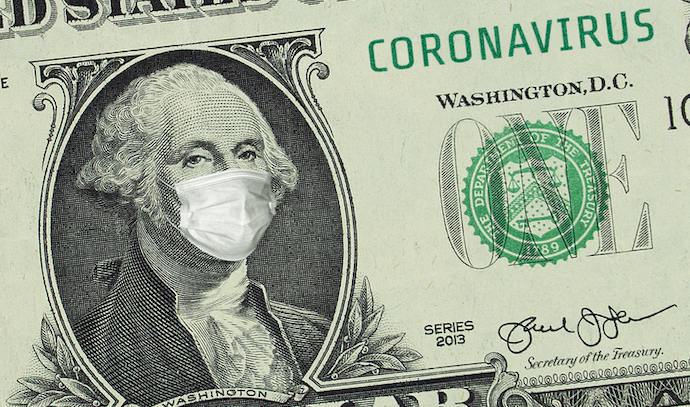Private Payers Renew Cost-Sharing For COVID-19 Hospitalizations
Nearly three out of four private payers are no longer waiving cost-sharing for COVID-19 hospitalizations and treatment.

Source: Getty Images
- Now that vaccines are readily available to all American adults, private payers have stopped waiving cost-sharing for COVID-19 hospitalizations, according to a Peterson-Kaiser Family Foundation (KFF) Health System Tracker brief.
Earlier in the pandemic, many payers provided financial relief to their members as the number of coronavirus-related hospitalizations rose.
Unlike covering the costs of testing and vaccine administration, there was no federal law that required payers to cover the treatment costs for patients who were hospitalized with coronavirus. However, KFF researchers found that 88 percent of people enrolled in private insurance had payers who waived COVID-19 treatment costs.
Payers started to lift coronavirus-related waivers in November 2020 and many more continue to do so in 2021 now that COVID-19 vaccines are widely available, according to the KFF brief. Routine healthcare has also made a comeback in the most recent stages of the pandemic, giving payers another reason to no longer waive treatment costs.
Experts analyzed the two largest private payers in each state and Washington DC and found that 72 percent of those largest payers have ended cost-sharing waivers for COVID-19 treatment.
Nearly half of the 102 payers included in the analysis had stopped covering out-of-pocket treatment costs by April 2021, when most adults became eligible to receive the vaccine.
More than 20 percent of the payers stated that they will phase out the waivers by the end of 2021, with ten percent ending the waivers by the end of October, the month in which the public health emergency is set to expire, the brief stated.
Initial results from the 2021 KFF Employer Health Benefits Survey showed that employers who offered self-funded and fully insured health plans also waived COVID-19 treatment costs for employees.
The results used data gathered between January and July 2021. More than one in three employers with 50 or more employees reported that their largest health plans waived cost-sharing for COVID-19 treatment. The larger the company, the higher the probability that it would cover out-of-pocket treatment costs.
But, like private payers, many employer-funded health plans have ended their waivers as vaccination opportunities have emerged.
Hospitals are still seeing an influx of patients who need COVID-19 treatment, but now the majority of those patients are unvaccinated, labeling these hospitalizations as preventable, the KFF brief noted.
Individuals who do not receive the COVID-19 vaccine and subsequently require hospitalization for treatment when they contract the virus may be subject to a high bill. In the average large employer-sponsored health plan, coronavirus hospital treatment costs—based on pneumonia treatment healthcare spending—could nearly wipe out an employee’s deductible.
During June and July 2021, the US healthcare industry spent over $2 billion on COVID-19 hospitalizations for patients who were unvaccinated.
The COVID-19 vaccines can prevent severe symptoms in infected individuals, requiring fewer hospitalizations. Private payers’ decisions to no longer waive out-of-pocket costs for these pricey hospitalizations may provide an incentive for more Americans to receive the vaccine.
In June 2020, months before the vaccine was established, experts cautioned that healthcare spending due to COVID-19 could range from $163.4 billion to $654 billion. Hospitalizations were the main factor behind these high figures, which could cost a median of $14,366.
Overall though, private payers do not expect the coronavirus to significantly affect healthcare spending in 2022. A separate KFF Health System Tracker brief detailed the initial rate filings of 75 individual marketplace health plans. The majority of the payers indicated that the pandemic would not have an upward impact on 2022 premiums.
